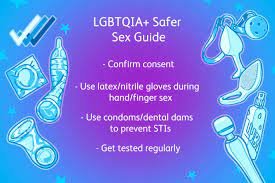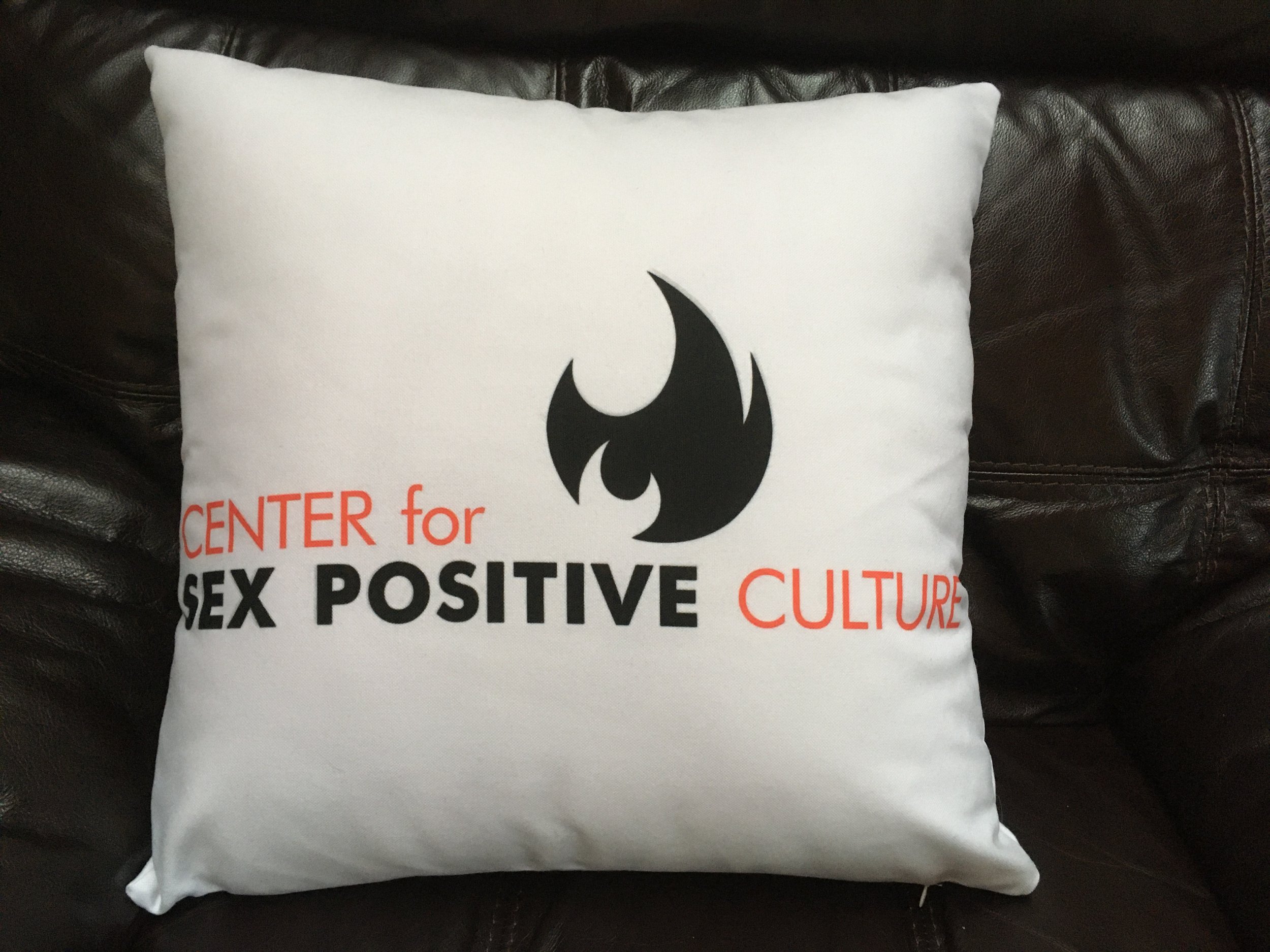By 7
We all want to be respectful and inclusive of others at the CSPC, right? This should be easy. And most of the time it really is easy. But even with the best intentions, sometimes conflicts can happen. My hope is that this article will provide some tools to improve the outcome should you find yourself in one of those rare cases.
One of the biggest challenges any sex-positive community faces is the variety of people who make up that community. It’s often said that diversity is a strength, and in many contexts that is true. Sex positivity is a broad umbrella, and in some cases the diversity of folks huddled together beneath that umbrella can become a source of conflict. Most of us have strong likes, dislikes, and opinions about how things should be done. These do not always align with the feelings and opinions of others in the community. We want a diverse community, but we also want one where people can feel safe and accepted. How can we do that with greatly differing opinions and all the potential conflicts this can create?
One important principle to follow is to allow other people to be authentically who they are. You might feel threatened, disapproving, or offended by somebody else’s identity. But how they present themselves, what pronouns they resonate with, and where they feel like they belong are really not up to you. On the surface, this sounds like the easiest thing in the world. “Just don’t be a jerk and you’ll be fine.” But it’s not always that simple. What if somebody holds political views that you feel are a direct threat to you? What if they dress in a way or practice a kink that you find triggering or offensive?
I find that a good strategy is to not answer questions that I have not been asked. If I were to meet somebody at a party and they were to mention that they have an eyeball-licking kink, that might result in a feeling happening inside of me, perhaps a very strong negative feeling regarding how I would feel if I were to engage in that kink. I can’t help having that feeling—my brain (like most human brains) is very good at imagining things, even when I don’t want it to. But note that this person has not asked me if I would like to do that. They’ve just provided information about something they enjoy. My response could be, “Cool” or maybe, “Interesting.” But a response like, “Eww! Not my kink!” would give the person a sense that their kink is inappropriate in some way, a judgment that I can’t make and shouldn’t project on others. Just because I don’t practice or enjoy watching a given activity doesn’t mean it is not welcome within our space. Now, if this hypothetical kinkster were to ask me my personal feelings on the matter, then I would of course be free to express them. Until that point, I can keep my feelings to myself. (BTW, I had to use something for the sake of example, and eyeball licking is the only thing I could think of that authentically does make me feel squicked. This hypothetical situation was meant to show that my feelings about something don’t make it good or bad—those are merely my feelings. If you engage in eyeball licking, please know that, whatever my personal feelings on this activity, it is not against any of our rules, and I will not say a damn word to you about how engaging in your kink would make me feel unless you actually ask me. Thank you.)
This applies not just to kinks. Genders, ways of dressing and presenting oneself, titles, relationship styles—all of these things can cause strong emotional reactions in others. When discussing the fact that I’m solo polyamorous in more monogamous spaces, I’ve sometimes received comments along the lines of, “That seems like it would cause so many problems,” or “Oh, I could never do that!” Even within polyamorous spaces, I’m often met with comments indicating that people think I’m solo poly because I haven’t yet met “my person” who I’ll want to have as a primary. Do these kinds of comments make me feel less welcome in those spaces? Yes, they kind of do. I didn’t ask these folks to engage in a polyamorous relationship with me or for their critique of my relationship style. I personally see a lot of problems with other relationship styles, but unless we’re actually discussing our opinions about the potential problems or ethical concerns surrounding relationship styles, I haven’t been asked that question. So it’s best for me to keep my opinions to myself. This is not always easy to do—I have strong opinions and I like to talk—but I do my best.
It seems obvious, but it still bears mentioning that there is no one true way when it comes to things like gender identity/expression, sexuality, relationships, and kinks. But we can all agree on consent, right? Yes, consent is essential in everything we do, but the way other people negotiate consent might look very different from the way you do it. If you’re negotiating something with them, then it is necessary that you get on the same page. Otherwise, for the most part, we can allow others to do their thing in the way that works for them.
Gatekeeping is a thing that many people do within communities, and it can encourage group cohesion and make spaces feel safer. But the fact is that homogeneity is only illusory—there will always be more differences if you look closely enough. What creates real safety is mutual respect for those differences. If you’re at an event that is specifically for a given identity or activity, and the person you’re talking to doesn’t seem to resonate with that vibe, ask yourself whether it’s your job to act as gatekeeper for that space. In some rare cases, Party Champions or the Event Coordinator might have a conversation if they feel like someone is behaving inappropriately at an event. If you have serious concerns around this, talk to a volunteer. But please don’t take it upon yourself to tell somebody they don’t fit in. People are complicated. They might be at the beginning of exploring some aspect of themselves, or closeted in some way until they feel like they can be more open. Helping people feel welcome even if we aren’t sure that they belong is an essential part of encouraging their growth, and it helps us to grow as humans as well.
So, what do you do if you get offended by or nervous about someone else in our spaces? Well, first of all, listen to your feelings. If you’re not feeling good about being around somebody, get yourself away from them. If an interaction feels off, talk to a friend or a volunteer. It might be that you just need some reassurance or a friendly person to talk over your feelings with. If our volunteer staff feels like somebody is breaking a rule or genuinely causing a problem, they might take some action, but please leave it to those volunteers to address it. Most of all, take care of yourself. Remember that you are the person who manages your own emotions. Don’t expect that others will necessarily change so that you can be more comfortable.
If you end up in a discussion that results in conflict, try to remember that having disagreements and conflicts is okay. When others view things differently, and we don’t need to work with that person in a way that makes their views directly relevant, the fact that we disagree often doesn’t really affect us. It is true that having another person share an opinion that invalidates our worldviews will feel threatening. Our bodies have the same reaction to this kind of relational stress that they would have to a direct physical threat. We might feel we need to escape, or fight in order to prove them wrong. It’s wise in these situations to give yourself some space for that feeling of threat to dissipate. There’s nothing wrong with saying, “I don’t feel like discussing this right now,” or simply excusing yourself to do something else. Let your body process the feelings and settle down, and think about if this is even a situation you want to return to. You can always pick up the discussion later, if that’s really what you want to do.
Even if you’re feeling unsure whether a given person fits in, you can still help them to feel welcome. It helps to assume that others have good intentions. We all come to the CSPC for different reasons, but I’ve observed that most people here are aligned with the ideal of sexual freedom for everyone. How we work toward this can look very different, so please show respect for others and their differences. Remember that we’re all in this together.









